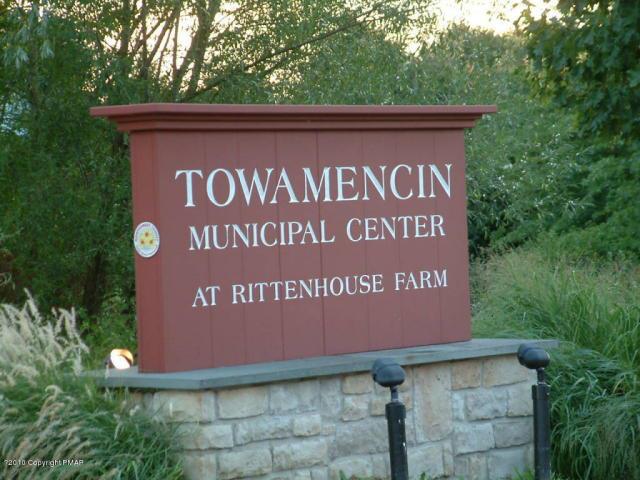Towamencin residents opposed to the sale of the township’s sewer system to a private company are continuing to fight.
Township supervisors voted 4-1 on May 25 to sell the sewer system to NextEra Water for $115 million. Supervisors cited various financial burdens the township faces as a reason for the sale, in an editorial in North Penn Now.
“In looking at options to meet these financial challenges, we noted that other local municipalities have sold their sanitary sewer systems to private operators, such as PA American Water or Aqua America. In speaking to the elected officials and staff of these municipalities, they were generally pleased with the results of selling their systems, so we felt that we had a fiduciary responsibility to see if this could be a viable option to help us meet our projected future needs as a community,” the supervisors wrote.
NOPE, a group of Towamencin residents who fought the sale, is continuing to try to stop the deal from being finalized. On its Facebook page, NOPE leader Kofi Osei said the group will go to the state Public Utilities Commission to object and also try to have Towamencin residents adopt a new charter.
However, if the PUC approves the deal, some say residents are likely to pay more.
“These residents have already paid for this once and now they’re going to pay for it again. It’s absurd,” said attorney Frank Catania, who represents the Chester Water Authority and Southwestern Delaware County Municipal Authority.
The Pennsylvania legislature legalized these types of purchases in 2016 via Act 12. Since then, utility companies have been convincing towns and authorities to sell their water and sewer infrastructure.
“And the current legislature hasn’t corrected it,” said Catania. “It really hurts ratepayers. It doesn’t give them any say at all…The legislature in 2016 created a feeding frenzy, which is still going on.”
“This sort of thing continues until the ratepayers look for ways to hold the supervisors personally responsible for these losses,” said Catania. “What is basically happening is the supervisors are getting money for pet projects of theirs, and the ratepayers have to pay without having a say in it. Until the residents start to hold the supervisors personally responsible for the problems they’re creating, this will continue.”
“What they really need to do is explore the possibility of a surcharge action against them,” he said. “That is where you can hold an elected official responsible if the township has lost money. It’s not a widely used area of the law…there are laws on the books that can be applied in this situation. The ratepayers have to pay for a borrowing the supervisors have made forever. They never get to pay it off.”
“The ratepayers get hurt badly,” said Catania. “There’s no grace period.” In a recent Public Utilities Commission (PUC) case regarding Willistown, an administrative law judge “called those rate freezes ‘political theater.’ That’s how they look at it.”
“Until people start to address the problem, the supervisors who vote for these things, and either get them removed or surcharged financially, it’s going to keep going on.
“This is the only kind of transaction where the buyer and the seller are both trying to get the highest price,” said Catania. “Because they don’t have to pay for it. The buyer will get all the money back from increased rates…Who borrows money to get paid back permanently over many generations?”
As for the Towamencin supervisors who voted to sell the sewer system, they are “financially illiterate,” he said.
Meanwhile, a May 31 letter from the Pennsylvania Municipal Authorities Association, Region One that includes Bucks, Chester, Delaware, Montgomery, and Philadelphia Counties, tells municipalities it opposes these sales.
“The customer pays for the original installations and capacity in their mortgage. The customer then pays for the system again as the private entities recover all of their acquisition expenses – plus profits, by raising customer rates,” the letter reads.
“However, the pain does not stop there, since even after paying for the infrastructure twice, the increased rates imposed upon the customers continue and typically will rise every few years – after all, the money-making machine runs in perpetuity!
“Meanwhile, the funds received by the governmental entity selling your systems will eventually be spent – resulting in unfunded programs and employees hired with the temporary cash. This will require another tax increase to fill the void. The bottom line is that the seller grabs the money, and the customer is left behind to pay both higher water and sewer bills, and higher taxes.”
Not surprisingly, a utility company spokesperson had a different view.
“We understand residents have questions about future rates,” said Steve Stengel, spokesman NextEra Water. “What we know is that under our plan, which was approved by the board of supervisors, we proposed that rates be frozen for two years. Future rates will be subject to the review and approval of the Pennsylvania Public Utility Commission and it is impossible to speculate on what they will be five or ten years into the future. It is also important for township residents to understand that we are committed to meeting the highest standards for the sewer system and providing the highest quality of service to community residents and businesses.”

